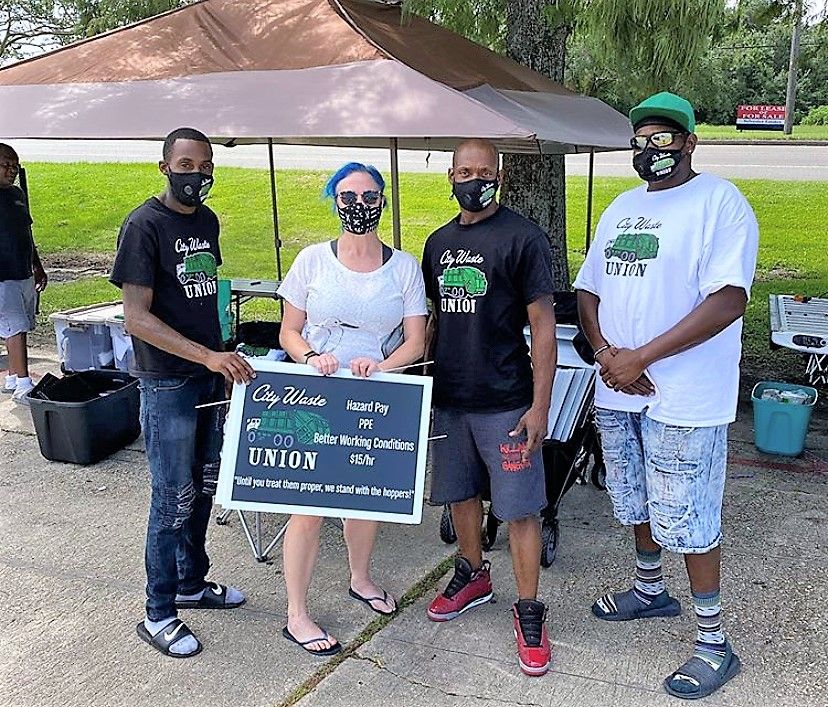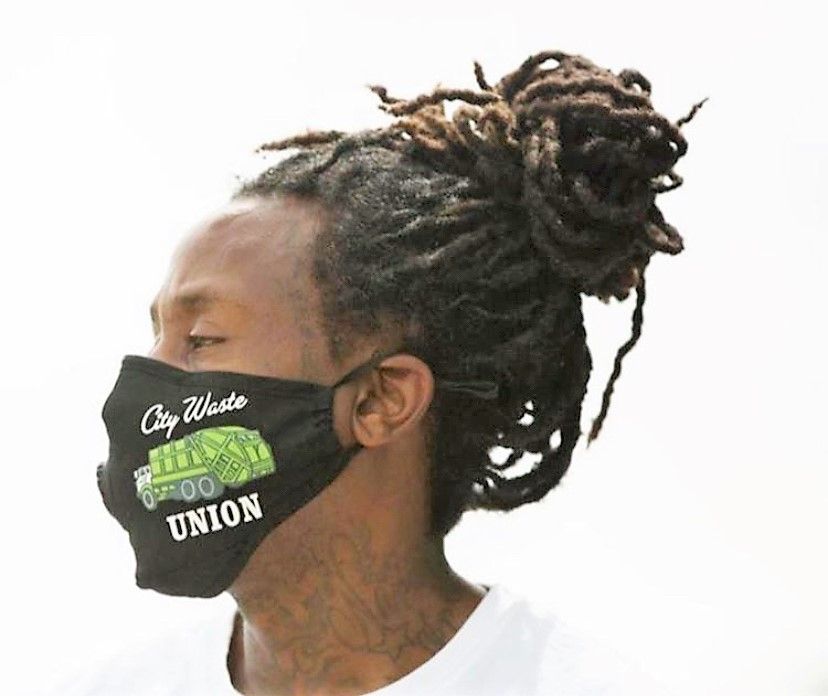The New Orleans
sanitation workers wake up around 3:30 a.m. They arrive at the yard between 4:00
and 4:15, and they leave with the trucks around 5:00. They work long days,
holding onto the garbage truck as it traverses the city, doing the hard work of
hopping off, grabbing trash cans, emptying them, and hopping back on. The days
are long, and the pay is low—in fact, until a few weeks ago, it was criminally
low. The "hoppers," as they are called, are crucial to the city's function, so
their jobs didn't stop when COVID-19 hit. They were forced to expose themselves
to the virus daily, picking up trash from infected homes and healthy ones
indiscriminately. They received no hazard pay for this and, according to the
men, also received no PPE.
When the sanitation
workers employed under Metro Service Group decided to go on strike for a $15-per-hour
wage, hazard pay, PPE, and regular truck maintenance, they organized quickly.
They created the City Waste Union and contacted Daytrian Wilken, niece of one
of the hoppers, to serve as the union's spokesperson. They gathered support
from local organizations and set up a website
where supporters can read about their struggle and donate. They made headlines
across the country, appearing in Vice, Southerly, and The New York
Times, among others. Still, no one expected it to last over 15 weeks.

The situation is more complicated than the (already complicated) run-of-the-mill strike. Instead, it's a struggle to even pin down blame. The 14 black men on strike are employed by a subcontractor of Metro Service Group, a black-owned business. But Metro Service Group, which has increased its wages from $10.25 an hour to $11.19 as a result of the strike, is locked in a low-bid contract with the City of New Orleans. Metro Service Group says that they can't afford the $15 minimum wage, and the City of New Orleans is in a spending freeze, so it's unlikely that they'd be willing to spend more money. It's a nearly impossible situation, but, at least according to the City Waste Union, someone needs to take responsibility and make a change for these men who are providing a vital service.

Because it's a tricky
situation, the City Waste Union isn't sure exactly what's going to happen next.
They have no personal issue with Metro Service Group, especially given that
it's a black-owned business. But regardless of who is shelling out the money,
these men are doing hard labor, day in and day out, for $11.19 an hour. It's
difficult, and sometimes impossible, to make a living that way: to pay rent in
an expensive city, to provide for a family, to make it to the end of each week.
Still, there are exciting new solutions being envisioned, including the
possibility of a cooperative, where the hoppers would own—and directly profit
from—their own labor. While this sort of idea might seem far-fetched, there are
other cooperatives throughout the city, such as the Dutch Alley Artists Co-Op or
the New Orleans Food Co-Op.
The City Waste Union says
they aren't only on strike for themselves. Far from it—they're on strike for
everybody. Union representative Daytrian Wilken says, "I never knew there were
so many labor organizations that were waiting on a moment like this—for 14 black
men to stand up and say something. We realized that it wasn'tjust about our struggle; it was about
everybody's struggle. Not just hoppers, but the whole working class is
struggling. When we said we went on strike for everybody, we went on strike for
the people who have been denied healthcare, evicted in the City of New Orleans.
We were thinking about all those people
who are on the ground with us, and the system has its knee on all of our necks.
We are stuck in this constant system of oppression and poverty, and our
ancestors went through this. Martin Luther King died during a sanitation
strike. His last speech was about sanitation workers. Why are we still talking
about this 50 years later? Being on strike for everybody just meant that we're
tired. Everybody's tired. We just happen to be the ones who stood up and did
something about it."
These are powerful words
full of conviction, and that makes sense. Wilken says that the strike has taken
over her life, and she feels a class solidarity she's never felt before. She's
doing this for everybody. But at the same time, she's doing it for her family—for
her uncle Jonathan who wakes up every morning at 3:30 a.m. and hops on a truck,
traversing the city and collecting its trash. The pandemic has highlighted just
how essential people like hoppers really are to the city's function. The New
Orleans sanitation strike is just one of many voices daring to ask: Why aren't
we treating them like the important and necessary workers that they are?

